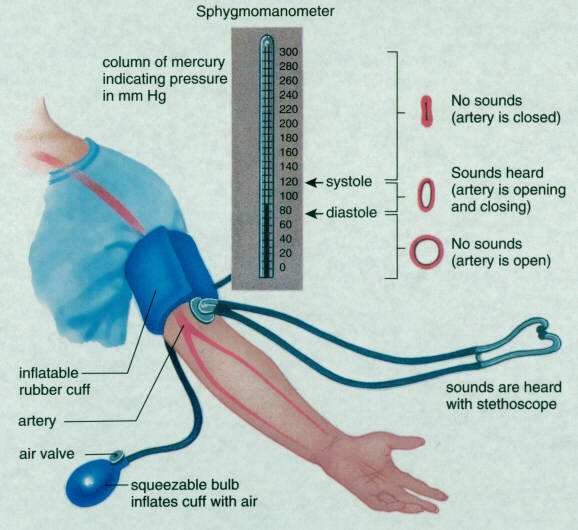
Silent But Deadly, High Blood Pressure
I thought I was blessed with excellent health, but a recent trip to the doctor proved otherwise–that I have pre-hypertension.
Because high blood pressure usually causes no symptoms until complications develop, it is known as the “silent killer.” While high blood pressure or hypertension was once thought of as a “man’s disease,” in fact, women are as likely to suffer from this condition as men are. Furthermore, more women than men die from complications of high blood pressure because women often ignore or fail to detect their high blood pressure until it is too late.
I would argue with my physician that I was okay and I didn’t need any medications to lower my blood pressure. I guess I forgot from all my years of selling cardiovascular medications that uncontrolled high blood pressure can affect your target organs: arteries, brain, heart, kidneys, and eyes.
When did this happen? When did the guidelines change? A quick Google search showed that in 2004, the National Heart, Lung, and Blood Institute (NHLBI) revised the basic guidelines for what blood pressure numbers mean. Do you know what your blood pressure is?

What Blood Pressure Numbers Mean:
Average: Lower than 120/80
Pre-hypertension: 120-139/80-89
Stage 1 Hypertension: 140-159/90-99
Stage 2 Hypertension: 160 or higher/100 or higher
Today, with all the technological advances, there is no excuse for not being aware of or able to monitor your blood pressure. You can keep track of how any or all of the following are controlling your blood pressure:
1. Rite Aid and other drug stores provide in-store health screenings.
2. There are affordable electronic devices: wrist and finger cuff monitors.
3. Most medical offices can take your blood pressure without an appointment.
4. Community Health Clinics/Fairs offer free blood pressure screening.
5. Blood Pressure Apps are available for smartphones
As adults age, systolic pressure (top number) rises, and diastolic (bottom number) tends to fall. An individual’s blood pressure varies with exercise, emotional reactions, sleep, digestion, and time of day.

In addition, physical factors (blood volume) influence arterial pressure. Each of these may, in turn, be influenced by physiological factors such as diet, exercise, disease, drugs or alcohol, stress, and obesity.
The bottom line is that uncontrolled high pressure can cause end organ damage/ target organ damage, which refers to damage occurring in major organs fed by the circulatory system (heart, kidneys, brain, and eyes).
Complications from High Blood Pressure/End Organ Damage:
1. Arteries: Arteriosclerosis (narrowing or hardening of the arteries)
2. Brain: Stroke
3. Heart: Coronary Heart Disease
4. Kidneys: Kidney disorder or kidney failure
5. Eyes: Blindness
If your blood pressure numbers are not in the normal range, you need to seek medical attention to find out what’s the best-prescribed medication to control your hypertension/high blood pressure to protect your organs and live a healthy life.
I am now on a low-dose agent to treat my pre hypertension to control my blood pressure (I am back in normal range) and, more importantly, protect those organs that help me to function.
Don’t be a victim of the silent killer; know what your blood pressure numbers are!

Great post and reminder to pay attention to our bodies by what we feed it and to exercise and keep moving
into better health!
Cynthia, thank you for your comment. I really like your comment to keep moving into better health, it is possible!!
Yikes! Good info! Reminder to self….have my bp checked!
Great outfit, btw!
Jeanne W., yes, have your BP checked, hopefully no surprises!